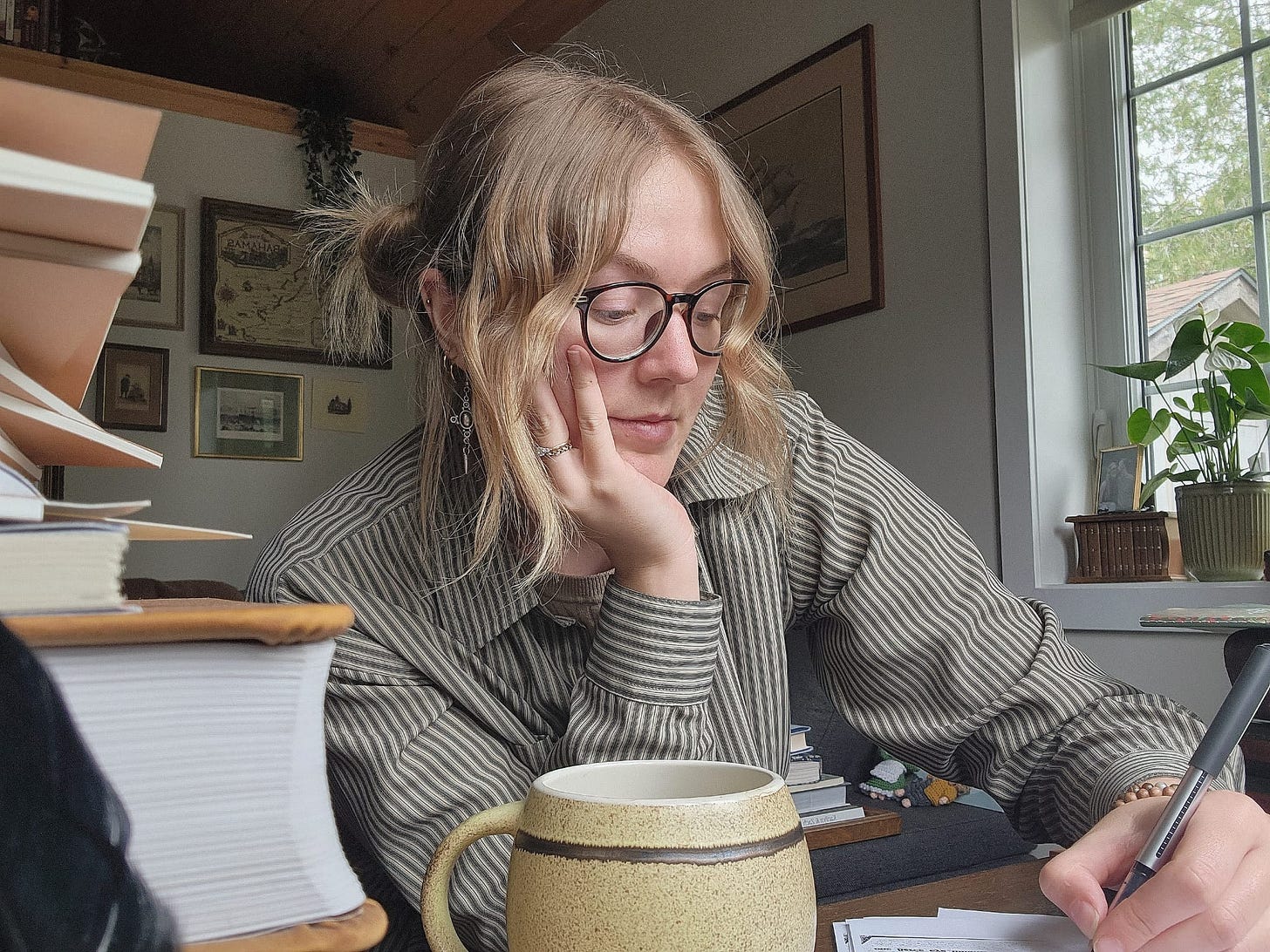The Joy (and Solitude) of the Life of the Mind
An Essay on the Intellectual Life & Its Discontents
I reflect often on one of C.S. Lewis’ memories as a little boy in Belfast. He came upon some words of Longfellow in a book of poetry, which gave him the most extraordinary feeling – “a notion of great, cold expanses of northern sky” – the sense of “northernness” that would tantalise him for the rest of his life, which he would seek on every page and in every paragraph, sentence, and phrase. I have had my own encounters with this sublime delight over the course of my short life, and like Lewis, I cannot exactly explain the feeling, and the more I try to recapture or explain it, the more it seems to slip away – though, slippery as it is, it always leaves a trace of something behind. My hunger for this experience – a moment of pure joy, of clear consciousness, of the certainty that a better world exists, and of apprehending the higher reality just beyond reach as it trickles down like stardust into my open hands – is a hunger that cannot be satisfied in this life. Nonetheless, I devour the materials that draw me to the “northern place” that my mind and soul long for.
The pursuit of this “aesthetic experience,” which is the experience of truth as well as beauty, and goodness as well as understanding, is the chief end of my “intellectual life,” which I think of more warmly as my literary life, or simply the life of my mind. The rapture that overwhelms me in the pages of a good book or amidst the heated throes of an impeccable lecture or in a reverie of imagination – these are the chief delights. This is what I yearn for, and often find in the early hours with my coffee, and in the waning, starlit evenings when the lamplight is my only waking companion. But Joy, in its pure, enthralling sense, cannot be had in every moment. It cannot be replicated in the same way twice. It cannot be transferred to or shared with another. Most of the time, it cannot even be put into words (I know I have done a poor job of it so far).
To live in a world entirely apart from the physical matter and space around your body – in a second reality (perhaps a higher reality: just as real as the first, but entirely personal) into which your loved ones cannot truly enter or live within – is to create an estrangement. Lewis expressed the ache of such solitude brilliantly when he said: “Oh for the people who speak one’s own language!” Yet, even if one is lucky enough to find such people, the life of one’s mind cannot be perfectly expressed in mere language, and there is no universal language through which thoughts and perceptions can be precisely translated. The world of my mind is more real and more joyful and more beautiful than any place I can be physically – but it is by necessity a peculiar and secluded place, known fully only by me.
Lately I have been overwhelmed by the longing for vivid and personable intellectual kindredship – but also by the near impossibility of finding it. If I cannot express my mind, and open the portal to that world, how can I invite another person into it? And they, me?
I often attempt to peer into people’s minds, and see what kind of a world lives there. There are many people who don’t read, don’t study, don’t write, don’t listen to good music, and don’t seek anything outside the mundane, ordinary rhythms of this world and ugly, sensationalist art – and I wonder if such people are really alive. What is it to exist in a disenchanted universe, without wonder and curiosity, or any notion of something beyond? What is it to never hear a book speak to your soul? To never connect with humanity of ages past through old stories? What is it not to write – to not have a voice in the story of the world? What is it to succumb to the limitations of the material realm: to pick-up trucks and plastic furniture and garbage cans and the waste of industrialized modernity? I could not bear such a life. And so, I continue on in my relentless pursuit of Joy, knowing that I will never have enough of it on this side of eternity. Understanding myself, I know I know nothing, but even this is its own Joy – one of expectation, and of fierce longing, and of hope.
I think about heaven often; more specifically, I think about the new heavens and the new earth, and what the realm of eternal Joy will look like. I hope to find myself then in Oxford, with an eternity to browse through the manuscripts of the Bodleian Library, and to read the myths and tales that pointed to Christ’s glory, albeit darkly and obscurely in comparison to the truth of the matter. I hope to take long walks through the fields and hedges around the small, scholastic town, and to pick flower bouquets as I go, and to return to my own manuscript full of fresh inspiration and epiphany. I hope to sit down with Tolkien and Lewis at the Bird and Baby and explore their imaginations and appreciate their geniuses. I hope my own craft will be improved upon – made richer, more beautiful, more edifying, and more glorious – day after eternal day. Who can say with certainty what this eternal world will look like, or what we will do there, or how we will think? At the very least, Joy can be expected – the bliss of arriving at the northern place at last.






